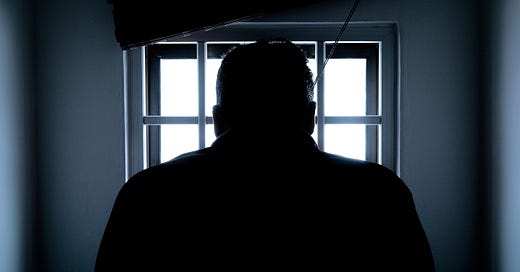What Is The Complicity Principle?
How responsibility functions on systemic issues.
“The ‘Complicity Principle’ emphasizes that one is accountable for what others do when one intentionally participates in a collective that causes the harm together. One is accountable for the harm we do together, independently of the actual difference an individual who intentionally participates in such group action makes. Participatory intention is intention to act as part of a group in collective action of agents who orient themselves around a joint project.”
- Barbara Applebaum, Being White, Being Good: White Complicity, White Moral Responsibility, and Social Justice Pedagogy.1
Who is responsible for systemic social justice issues? While no one person is to blame for society-wide injustices, many people participate in harmful systems. The Complicity Principle is a concept in critical social justice that suggests that although no single individual is responsible for systemic issues, each person who is complicit in a system of harm is responsible for their role in that system.
Take for example the issue of circumcision. Parents say the doctor told them to circumcise. Doctors say they have to circumcise because of their job at the hospital. The hospital says they have to offer circumcision because parents want it. Who is responsible?
Genital cutting is a systemic issue. No one person created the entire system that led to a child being harmed, yet they all were complicit in that system. The Complicity Principle would suggest that everyone, including parents, doctors, and hospitals, is responsible for their role in the system, regardless of how significant that role was to the harmful outcome.
Complicity in a systemic problem can take many forms. For example, suppose a parent tells children that they can’t say no to adults who want to touch them or hug them goodbye and then gets mad at the child when they disobey. If an abuser uses that cultural conditioning to tell the child “you have to let me touch you, or your parents will be mad at you,” is the parent complicit in that abuse? From an individual perspective, no. From a systemic perspective, the cultural ideas they shared contributed to the harm of children, so they were complicit in a larger social and cultural system that lead to pedophilia.
In my book Children’s Justice, I call the system that leads to children being sexually harmed systemic pedophilia. Systemic pedophilia does not describe individual desire but an entire system of culture, ideas, language, institutions, etc. While an individual might not personally harm children, they might be complicit in systemic pedophilia through the language they use, people they contribute money to, or cultural ideas they share.
The Complicity Principle explains why critical social justice activists often speak about systemic issues in a totalizing way. If social justice issues are systemic, there is no neutrality. Every choice either contributes to those systems or doesn’t. When people protest that they personally are not to blame for a systemic issue, they ignore the ways that they might be complicit in that system, even if they have no individual bad intentions. This triggered defensive reaction is an attempt to avoid seeing their own complicity in systemic issues known as fragility, and on the issue of systemic pedophilia, pedophile fragility.
Avoiding complicity in systemic issues requires developing a critical consciousness, which means seeing how every action, idea, or aspect of society you interact with either contributes to systems that harm or creates the better world we all desire. On children’s issues, this means looking at how the larger systems we participate in impact children. It means recognizing that there is no neutral, and you are either complicit or antipedophile.
To learn more, read Children’s Justice.
Applebaum, Barbara. Being White, Being Good: White Complicity, White Moral Responsibility, and Social Justice Pedagogy. Lexington Books, 2010, pp. 123–124.





In a large society/nation/state with multiple events and standards, taking responsiblity for action on something a person does not like or agree with, puts a complicated burden on abiding with one's principles and just being a part of the society because one happened to be born into it.